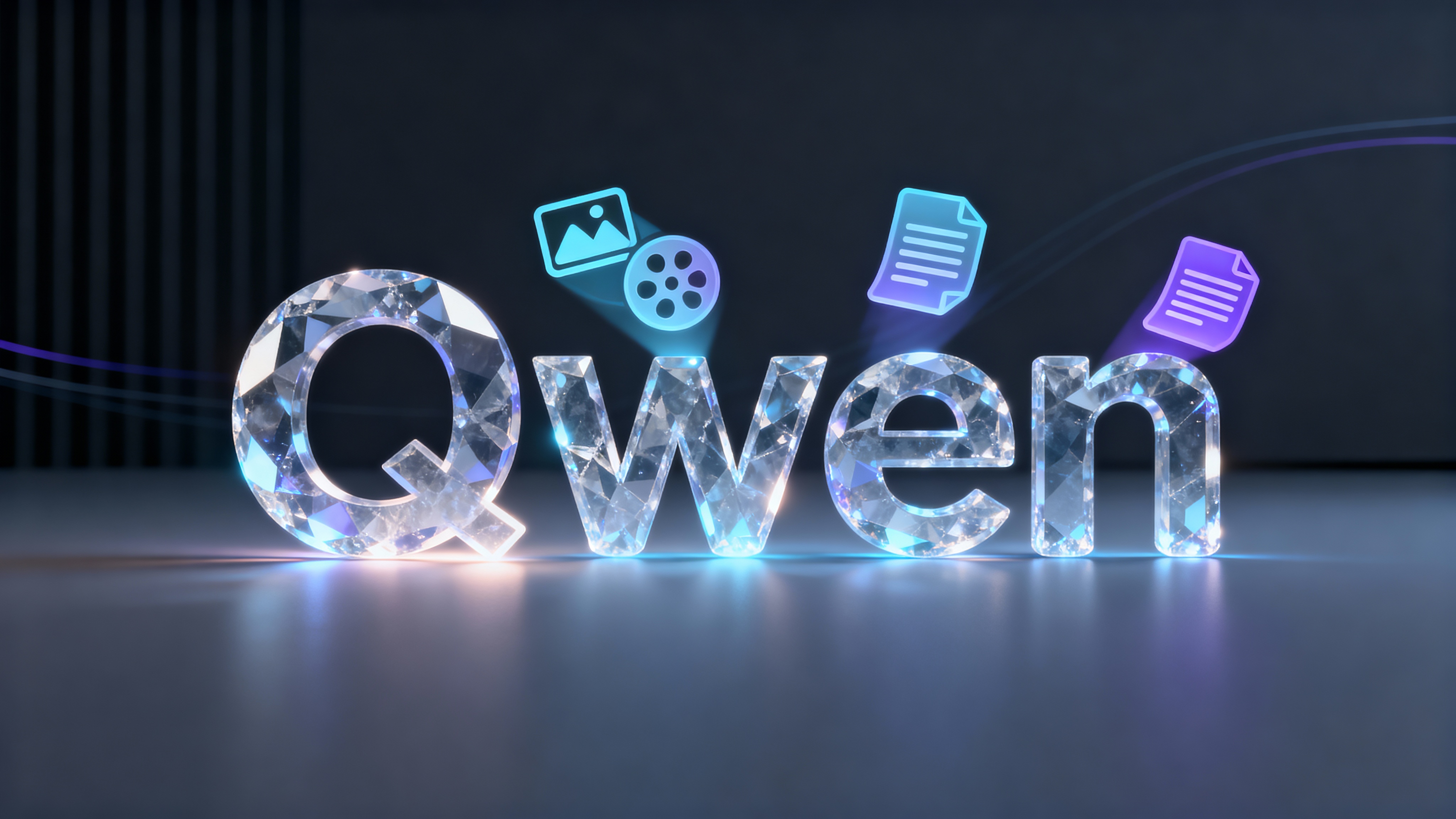
General information about the Qwen model
Qwen (also known as Tongyi Qianwen) is a family of large-scale language models developed by the Chinese tech giant Alibaba. This neural network quickly gained popularity and was recognized in some tests as one of the best Chinese-language models, confidently competing with products from OpenAI and Google. It is a multi-functional tool accessible to a wide range of users.
The purpose of this article is to detail Qwen’s capabilities and how users can use it to generate various content, including images, videos, and text. This model’s relevance stems from its multimodality and the high quality of its results. New features are constantly being added, making the neural network a cutting-edge solution in the field of AI.
What can Qwen do
This is a powerful neural network capable of solving a wide range of problems, making it versatile. Key capabilities include text processing, programming, and, of course, media content creation. It supports over 29 languages, expanding its applicability to an international audience.
Among other things, it can act as an advanced chatbot capable of engaging in meaningful conversations. Specialized versions, such as those for code development, are particularly noteworthy. Alibaba’s model also boasts enhanced mathematical capabilities. This neural network can not only respond to queries but also reason through complex problems, mimicking the human thought process.
Image generation - examples
One of the most popular features is image creation (including photos and pictures). The multimodal version of Qwen-VL (Visual Language) allows you to create images based on a text description (prompt). The generation quality is high, with detailed rendering, realistic textures, and harmonious colors. Users can choose a new style for their images, from photorealism to abstraction.
For the best results when creating an image, please be as broad and specific as possible in your request. Qwen can create images in a variety of styles and proportions:
- Photorealism for creating realistic portraits or landscapes;
- Artistic styles imitating famous masters;
- Animation for developing characters or scenes;
- Abstraction for creating unique visual concepts.
We provide assistance in creating visual content using AI tools.
Video and text generation
Beyond static content, Qwen expands its capabilities to video production. The video creation feature allows users to generate short videos (usually up to 5 seconds) based on a text query or image. Video creation can take up to 10 minutes or more, but with proper prompt writing, high-quality new material can be produced. Videos are also generated without watermarks indicating the use of a neural network (although this may vary depending on the specific version or interface).
As for text, it’s primarily a powerful language model. It can solve any text-based problem:
- writing articles, stories, letters, poems, and other content;
- editing and analyzing existing text;
- writing and optimizing program code;
- translation between multiple languages.
With Qwen, you can create both long texts and short, concise responses in chatbot mode.
How to enable/disable generation
Getting started typically doesn’t require complex manipulation, as the functionality is often integrated into the main chat interface. To begin generating images or videos, first select the appropriate model (for example, Qwen-VL for visual content), then find and activate the generation option in the query input field.
If you don’t want the neural network to generate multimedia and focus solely on text, you’ll need to disable this feature. The generation button is usually located next to the chatbot’s input field. You can remove or disable it to prevent Qwen from responding beyond the textual level. To disable or remove generation mode, find the corresponding switch or button in the chat interface:
- Switch to “Image Generation” mode for photos and images;
- Select “Video Generation” mode for video content;
- Tap the icon to remove or disable visual mode to return to text chat.
In our courses, we explain in detail how to manage settings for effective content creation.
Access to Qwen
Alibaba’s Qwen currently offers several access options. The easiest is through the chatbot’s official web interface. This is especially convenient for Russian users, as it often doesn’t require a VPN, and the available functionality, including generation, is unlimited. This allows users to easily access the chat and immediately begin working with text, photos, and videos.
Additionally, developers and advanced users can access some open-source models. This allows them to run the neural network locally on their own hardware, providing even more opportunities for creating and editing new content. On our website, by asking a question to the AI assistant, you can learn how to deploy an AI model locally, how to construct an effective image generation query, and how to use it to create code.

